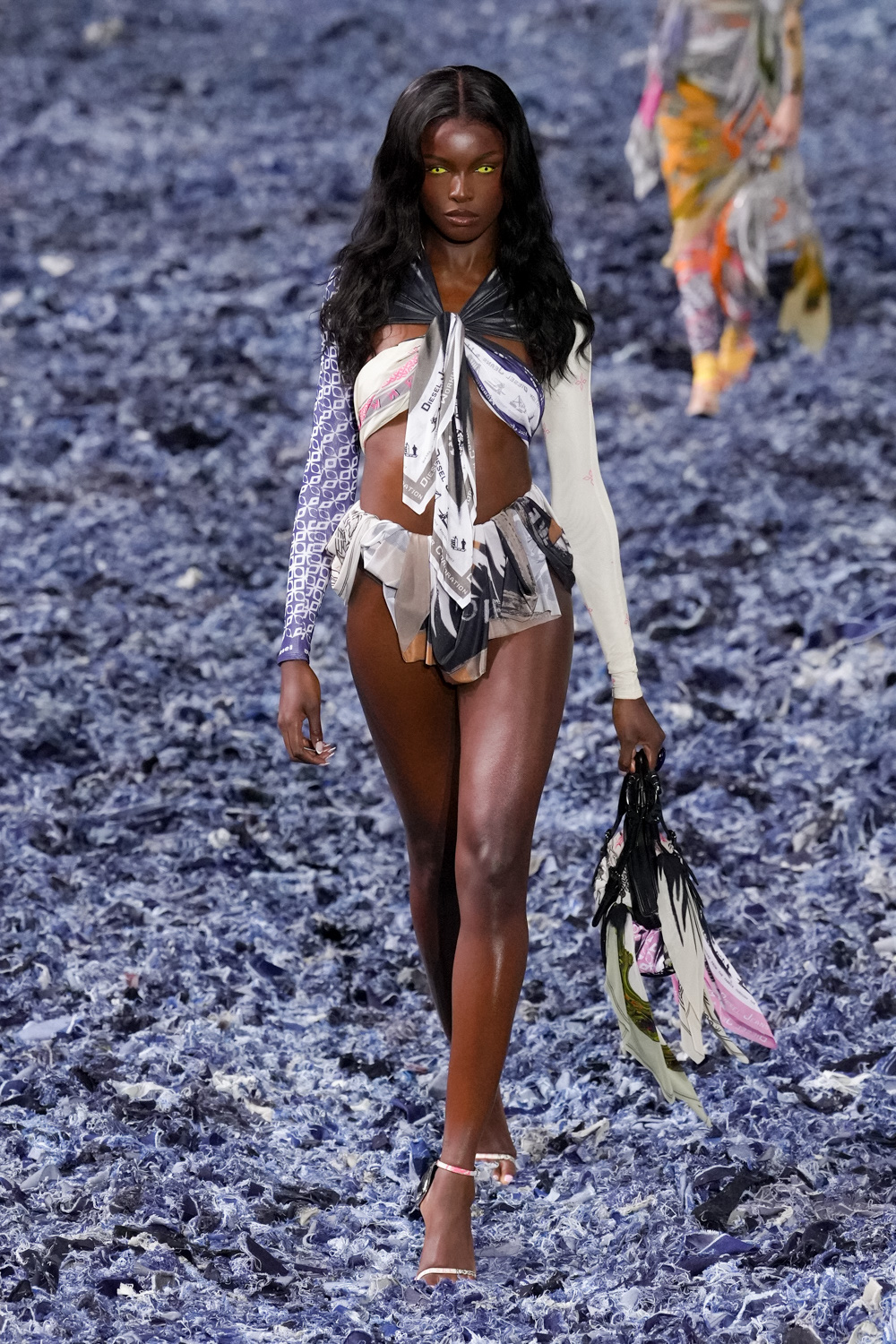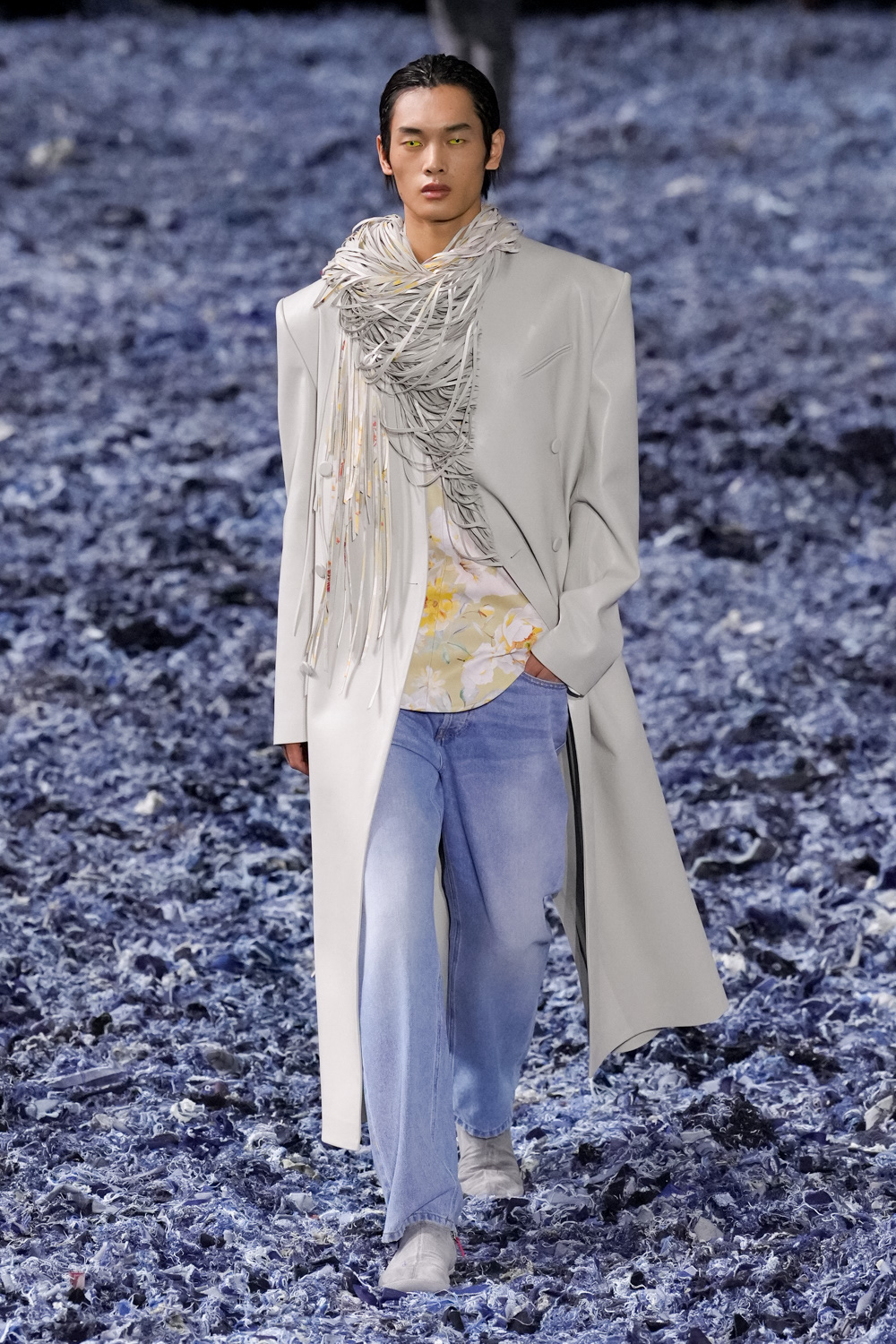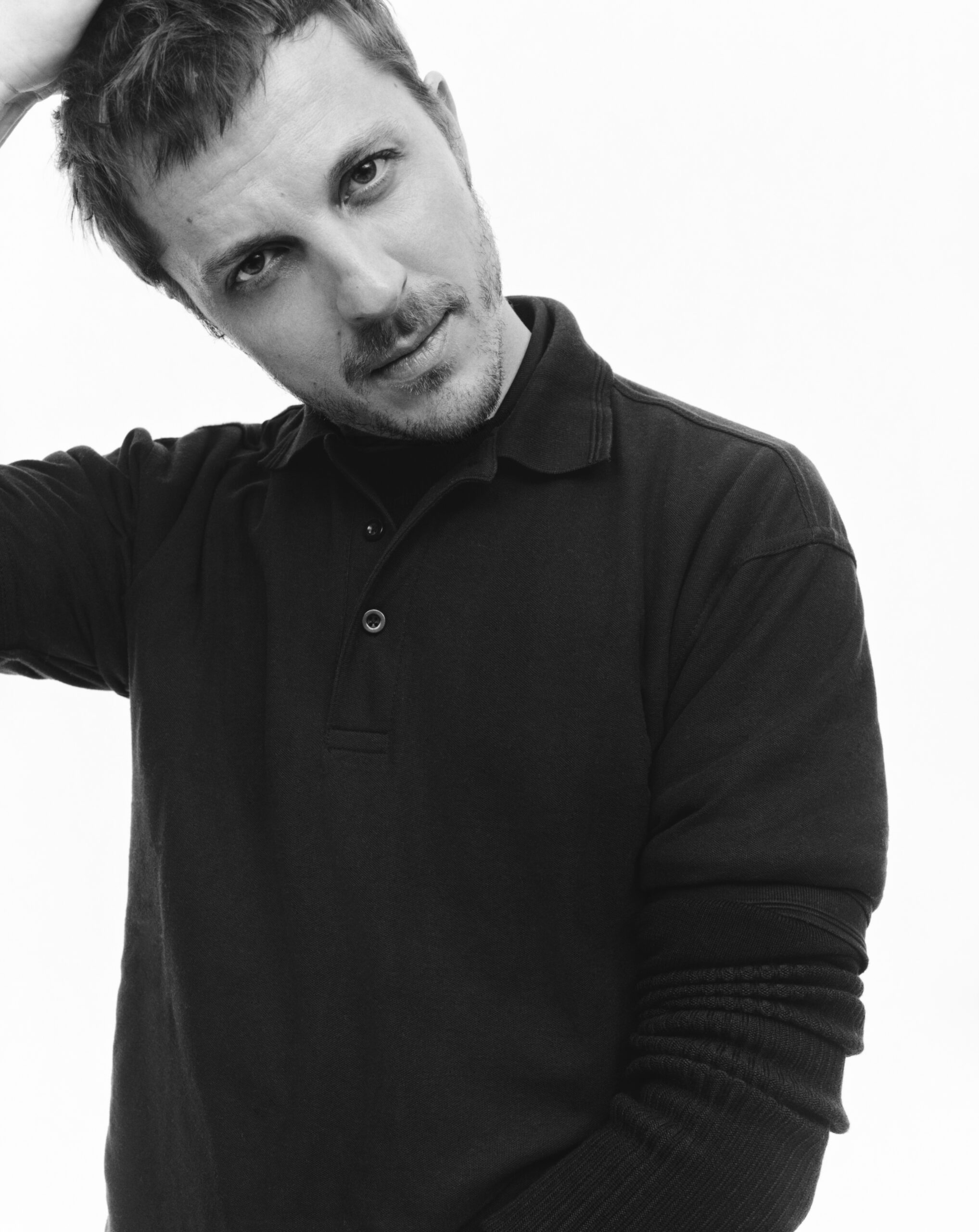News
Transitioning from the influential Y/Project to the globally renowned Diesel, Glenn Martens made a bold choice to amplify the brand’s voice, which wouldn’t have been easy. In an industry ripe with directions to take, he chose to be loud, fearless, and for the people. Martens disrupts traditional norms, prioritises innovation, and embraces imperfection – much like his “beauty in waste” philosophy – operating far beyond the standard boundaries of high fashion. By making sustainability cool and even rethinking exclusivity, like inviting non-industry voices to Diesel’s shows and engaging intimately with the community, he proves he’s not just playing by the usual luxury rules. Instead, he’s an innovator challenging the status quo of the fashion world defining Diesel as the alternative to luxury brands.
One example of this is his efforts in cementing Diesel’s appreciation of “circular fashion” by introducing responsible projects, such as the ”Diesel Library” which takes a 360 approach to sustainability by selecting lower-impact materials, finishes and washes. Diesel also introduced the Preferred Treatments Matrix – a framework designed to adopt lower-impact treatments which reduce water and chemicals use. Diesel is making it clear that sustainability is not just an addition but a commitment to the brand’s future, which was evident in the brand’s Spring/Summer 2025 Collection.
“There is beauty in waste, in what is distressed and destroyed. It’s in the circularity of denim waste, and in the distressing that we build into the collection. This is the disruption of Diesel; we are pushing for circularity in our production as hard as we push the elevation of design.”
The SS25 show featured an immersive experience created from 14,800 kg of denim scraps, intentionally showcasing how waste materials can be repurposed into something beautiful. This ethos extends to other aspects of the brand, such as store designs and pop-up sets, including the denim-covered pop-up this fall in San Babila, Milan, where denim pieces were plastered on the walls and podiums wrapped with them – another creative use of waste materials.
As for the runway looks, the show included familiar staples like cotton sweatshirts, mini-dresses, and tanks and transformed them into high-fashion statements. Key pieces featured long fringes on denim micro shorts, creating bold silhouettes that push the limits of traditional distressed looks. Diesel’s signature devoré jacquard techniques burn away layers of cotton, adding depth and texture, while tailored denim pieces are refined with lasered double loom jacquard fabrics. Artisanal coats made from leftover denim threads and striking Prince of Wales prints on jerseys and dresses further highlight Diesel’s creative approach to reimagining timeless designs.

Diesel, standing shoulder to shoulder with luxury giants but never defined by traditional luxury, has exploded in influence since leveraging that space and appealing to a broader, more diverse audience. Martens tells ICON, “The fun thing about this brand is that it’s a brand which is talking to every single kind of person in the world. We have a really broad, very effective collection. No matter your price point, or upbringing, you can be part of Diesel because it stands in contrast to traditional luxury. It’s not about an aesthetic; it’s about a lifestyle. It’s about having fun, enjoying life to the fullest, going against the flow, doing whatever you want.”
Dubai definitely catches Diesel’s drift echoed in Martens’s statement, sharing the same pulse of innovation, boldness, and fearless energy. “Diesel suits Dubai – it’s all about successful living,” Martens remarked. Reflecting on the metropolis city, Marten described it as very fashion-forward and expressed his excitement to see the development of Diesel there as well as other brands.

In line with Glenn’s tradition of curating special collections for different cities, Diesel crafted a unique capsule collection to celebrate the opening of the brand’s flagship store in Dubai earlier this year. “It’s always nice to celebrate a flagship store or something specific for a country with a little bit of a small collection.” The collection reflects both the city’s vibrant lifestyle and Diesel’s rebellious spirit. Tailored to Dubai’s hot climate, the collection features easy-to-wear pieces like t-shirts and tank tops. “It’s hot here, you guys change your shirt twice a day,” Martens humorously remarked when visiting the city earlier this year on the occasion of the store opening.
A standout moment for this capsule is the debut of the iconic “biscotto” logo—a red box emblem that has been part of Diesel’s identity for a long time but had never been used on ready-to-wear apparel before. Martens explained, “When I came in [Diesel] four years ago, I started using it as a classic branding on clothes. It was always used for communication, but never allowed on apparel.” This marks a pivotal moment for Diesel, as the brand embraces the logo in a new way, making it available for the first time in this collection.
It’s not just their diverse collections that have been making Diesel stand out, but their bold brand messages too. Martens speaks directly to today’s youth rebellion, being vocal on social issues. Diesel addressed cyberbullying through the “Diesel Hate Couture” campaign, turning hateful comments into messages of empowerment. The brand also took a stand on inclusivity with “Make Love Not Walls,” advocating unity in the face of political and social division. The “Diesel Loves Lee” is an upcycled collection where the garments are half Diesel and half derived from the other brand’s unsold stock: both parties donated via the OTB Foundation a fixed amount to benefit projects with the UNCHR, the UN Refugee Agency. It’s safe to say Martens is leading the brand with fearless conviction, being vocal on all fronts, from design to social change.

Words: Serena Skaf
Interview: Sami Abd Elbaki